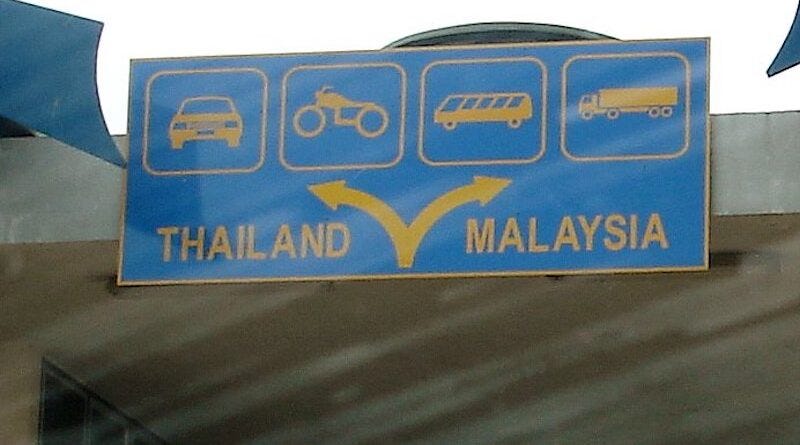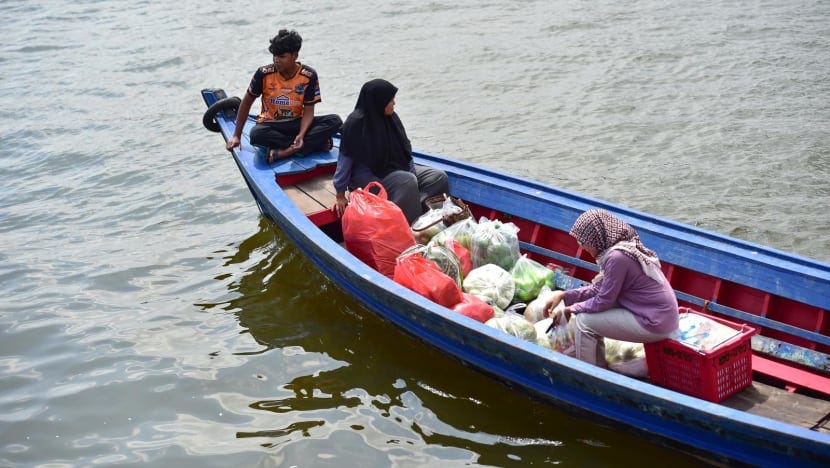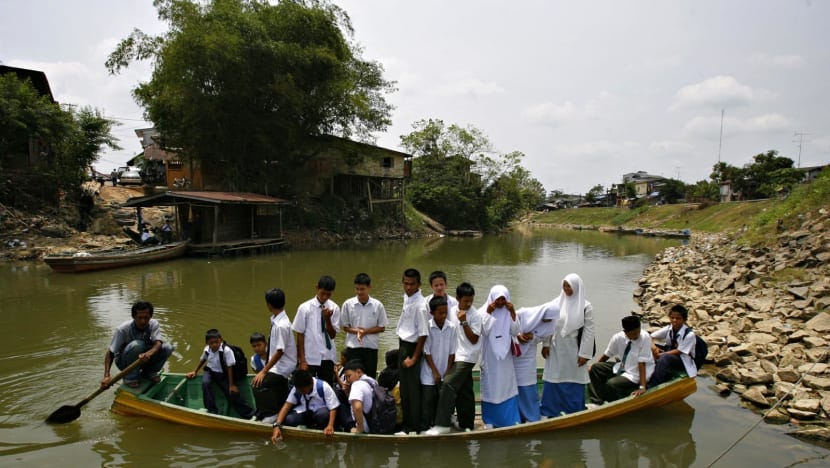
Murray Hunter
Malaysia Aggressively Closes Informal Border Crossings With Thailand – Analysis
The Thais are the greatest beneficiaries
Dec 27, 2024

Customs checkpoint in Kelantan (Malaysia) with Thailand at Rantau Panjang. Photo Credit: aarpr, Wikimedia Commons
On December 1, the Royal Malaysian Police (PDRM) swooped onto all of the informal and illegal border crossing points between Kelantan and Thailand. The Malaysian police appear to have taken this action independently of the Thai authorities, although the Thais have supported this move. The Thai 4th Army chief Lt General Paison Nusang said that Thailand respects the Malaysian operation.
These operations were forewarned by the Malaysian home minister Saifuddin Nasution Ismail, who last month said that border crossings will only be allowed at the Immigration, Customs, Quarantine, and Security (ICQS) posts at Rantau Panjang, Bukit Bunga, and Pengkalian Kubar, indicating the prime focus is upon interdicting those involved in smuggling and violence from Tak Bai, through Sungai Kolok to Narathiwat and Yala on the Thai side.
The operations equally target Malaysian and Thai nations, as many hold dual country documentation. These people have relatives and families on both sides of the border. The Malaysian media reported that a number of people have been caught and detained at the Immigration Detention Centre at Tanah Merah in Kelantan.
The operation not only relies on border police, but electronic means such as long-range cameras and drones are also being used. This has been supplemented with Humint operations by the police Special Branch in Ratau Panjang. There have already been some low-key skirmishes with smugglers, where shots have been fired at Malaysian police across the border from Thailand. Thai police managed to capture the perpetrators a day later.

So far, there have been no execution style murders of Malaysian police, just like Thai police and security forces have been experiencing for years in the three southern Thai provinces.
For over a century, local residents have crossed unheeded across the Sungai Kolok river to visit relatives and families, purchase supplies, do business, attend school, or do shopping. This is the first time in Many years, authorities on either side have enforced immigration regulations. Around five years ago, the Thai army partly built a wall along the border of Sungai Kolok town. Soldiers manned the border wall but never challenged those who crossed the border undocumented there.

Crossing the border until now had been part of the daily lives of thousands of people. Even at the official crossing point at Sungai Kolok, nine out of ten locals may not use any documentation to cross the border. There was an unofficial understanding in the area that if you crossed to visit the immediate area on the other side of the river for a short period, authorities won’t bother to inspect documents, unless you were an outsider to the region.
Many claim the border is porous through both official and unofficial routes.
The Malaysian move can be seen as very positive, which will assist the Thai authorities clamp down on those involved in the deep south violence and are domiciled in Kelantan. If this action works well, then a lower number of violent events will be a windfall for the Thais. The Thais have wanted to clamp down on the border to prevent the movement of suspected insurgents, without much assistance from the Malaysians. There appears to be some change of heart from the Malaysian side.
There is very little smuggling of rice, petrol, and cooking oil across the ‘rat trails’, as they are called. Most of this occurs through the official border with little strictness by customs officials on both sides. Petrol is smuggled through pick ups modified with extra fuel tanks.
Perhaps the other major benefit will be better control over the trafficking of methamphetamine into Malaysia from Myanmar and Lao border areas in Thailand. The Thai southern provinces are well known for a plentiful supply of illicit drugs and narcotics.
What affect will this move have on smuggling and violence in the deep south will only be seen in a few months time, that’s if the Malaysians maintain their operation over the long-term.
No comments:
Post a Comment